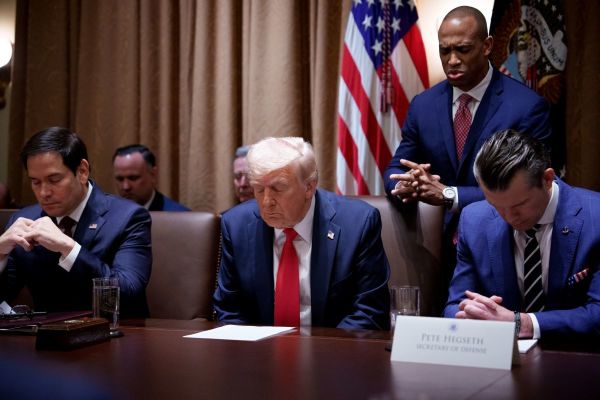NCAA 'misleading' consumers by allowing male athletes to compete in women's sports: Texas AG

Texas Attorney General Ken Paxton is suing the National Collegiate Athletic Association, claiming the top college sporting body in the United States is engaging in deceptive practices by marketing events as exclusively for female athletes while also allowing trans-identified males to compete.
Paxton's lawsuit, filed earlier this week in the 99th Judicial Court for Lubbock County, requests a preliminary injunction to prevent the NCAA from allowing men who identify as female to compete in women's sports.
In the suit, Paxton argued that the NCAA violated the Texas Deceptive Trade Practices Act, which exists to shield consumers from false or misleading business practices.
"The NCAA is intentionally and knowingly jeopardizing the safety and wellbeing of women by deceptively changing women's competitions into co-ed competitions," the attorney general said in a Sunday statement.
"When people watch a women's volleyball game, for example, they expect to see women playing against other women — not biological males pretending to be something they are not. Radical 'gender theory' has no place in college sports."
The legal filing contends that consumers purchase goods or services associated with women's sports because they want to watch women compete against women.
Paxton argues consumers want to support female athletes, and events that have men competing should be advertised by the NCAA as "mixed" and not "women's" competitions.
"The NCAA is further engaging in false, deceptive, and misleading practices by failing to disclose to consumers which participants in 'women's' sporting events are women and which are men, leaving consumers who want to purchase goods and services associated with women in women's sporting events confused and frustrated," the legal filing states.
"Disclosure of all male participants in women's sporting events or rebranding of the event as 'mixed' or 'co-ed,' would allow consumers the choice of whether to purchase goods and services associated with the event, whether in support or protest, and allow rival teams, players, and member schools to decide whether to participate in the event."
The filing described allowing men to compete in women's sports as "inherently unfair and unsafe" due to the biological differences between the two sexes and notes how important women's sports are to future employment opportunities, academic achievement, self-esteem and development.
"When female athletes are forced to compete against men in women's sports, they are deprived of titles, records, medals, scholarships, and opportunities to win; opportunities to participate in a fair and safe environment; and the ancillary benefits that sports participation provides," the lawsuit argued.
"Consumers do not purchase goods and services associated with women's sporting events to watch men steal medals and records from female participants," he added. "When consumers have purchased goods and services associated with women's sporting events only to discover a man competing, they have invariably reacted with revulsion and outrage," the document continued.
The NCAA did not immediately respond to The Christian Post's request for comment.
Paxton's legal filing is part of an ongoing debate about policies that allow men who identify as female to compete in women's sporting events.
Earlier this year, the University of Wyoming women's volleyball team took a stand by forfeiting a match against San Jose State University because the school allowed a man to compete on the women's team.
Utah State University also opted not to force its women's volleyball team to compete in a scheduled Oct. 23 game against SJSU, joining other universities who forfeited their games.
Women's sports advocate Riley Gaines, alongside dozens of female athletes, also filed a lawsuit against the NCAA earlier this year. The Independent Council on Women's Sports helped fund the lawsuit challenging the NCAA regulations that allow males who identify as female to compete in women's sports.
"By challenging the NCAA's draconian and discriminatory policies, we're sending a clear message: the integrity of women's sports is non-negotiable," ICONS co-founder Kim Jones said in a statement at the time. "We are committed to defending the hard-won rights of women athletes everywhere. This isn't just a legal battle; it's a moral stand for equality and justice in sports."
Samantha Kamman is a reporter for The Christian Post. She can be reached at: samantha.kamman@christianpost.com. Follow her on Twitter: @Samantha_Kamman






















